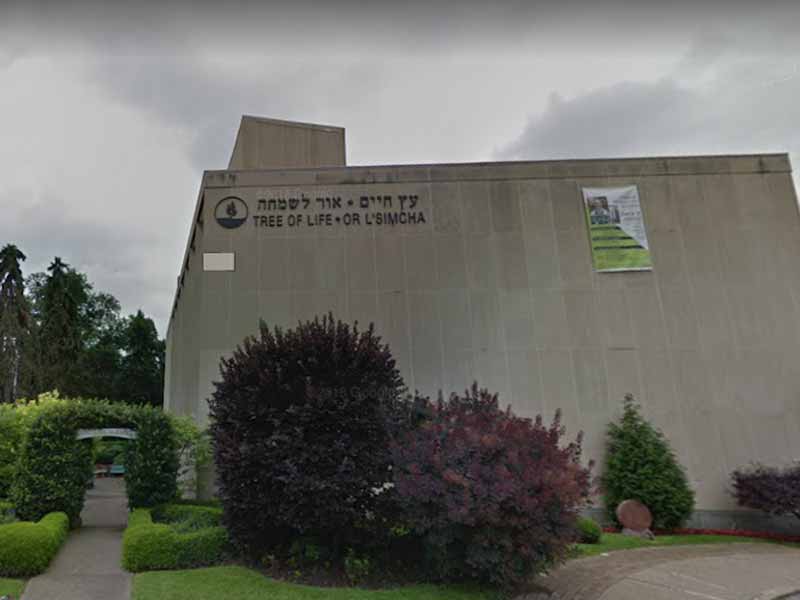Our ancestors had more intimate relationships with demons than we do: they ranged from merely mischievous imps who could foster creativity, to personifications of our sinful impulses, to Satan, the embodiment of all evil. Late last month, especially, on Oct. 27, we saw different demons at work.
Earlier in the week, on Oct. 22, many Jewish eyes turned to Tel Aviv, where the General Assembly of the Jewish Federations of North America convened for the first time in the First Hebrew City. Partisans falsely claimed that holding it in Tel Aviv was a repudiation of U.S. President Donald Trump’s recognition of Jerusalem as Israel’s capital. These critics either had no idea how far in advance an event of this scale needs to be booked, or believe that federation executives have demonic predictive powers. In fact, choosing Tel Aviv was an embrace of modern-day Israel.
The impish dybbuk competed with some sinful impulses in Tel Aviv: while many sessions tackled Israel-Diaspora tensions, often exposing arrogance and cantankerousness, the exhibit hall showed a remarkable Israeli-Diaspora partnership at work. One organization after another told its stories, honoured its patrons and, of course, sought more generosity. Wandering around, a visitor couldn’t help but notice something we take for granted: how disproportionately charitable Jews are with our time and money, and how expansive our community’s worldview is – harnessing millions of us, investing tens of millions of hours, and billions of dollars, in a chaotic, rollicking, worldwide project to stretch our souls, help one another and improve the world.
READ: TROY: PRAYERS ECHOING IN THE HEAVENS
Nearly 10,000 km away, and just a few days later, in Pittsburgh, the Angel of Death materialized, eclipsing memories of all that goodness, as a crazed gunman showed how much damage one satanic soul can do.
A full account of the Pittsburgh synagogue horror must acknowledge the rank anti-Semitism that oozed out of the shooter’s mouth, while assessing other factors, too. This is also a tragic story about easy access to guns, about violence in America, about hyper-partisanship, demonization, social breakdown and individual psychological decompensation. Only the murderer knows just what mix of personal misery, social alienation and political agitation erupted in Squirrel Hill. Quoting his tweets, Facebook posts or slogans only offers some simplistic clues to the motivation behind his evil act.
There’s a deeper mystery here, too. “Why the Jews” is one of those perennial questions – especially when framed against the overflowing magnanimity of the general assembly’s exhibition hall in Tel Aviv. How is it that a people who, whatever our imperfections, strive so hard to heal humanity, have earned such hatred from so many human beings?
It’s tempting to retreat into speculations about Satan, to surrender to simplistic, mystical explanations about curses and demons. But a more historically oriented answer might emerge from another mystery: how have communists and capitalists, universalists and nationalists, religious fanatics and atheists, Americans and anti-Americans, ultra-conservatives and ultra-progressives, Sunni Islamists and Iranian Shias, Muslims and Islamophobes, all found common cause in disdaining Jews? It’s remarkable. Anti-Semitism is not only “the longest hatred,” in the words of the late historian Robert Wistrich, it’s the most plastic hatred, too – elastic yet hard, forced but enduring.
That’s partially because Jews are the Eternal People – and impressively adaptable, too. Jews have always been a particularly annoying combination: similar enough that authoritarian bullies resent us for being so different, and different enough that insecure thugs mistrust us for seeming so familiar.
That dance between fitting in and standing out makes haters see us as demons. I like to think it’s the tamed, creative imp within us, the rebellious spirit that serves as a creative catalyst, fuelling our hunger to improve the world, while fortifying our resistance against the devils who try to destroy us.
